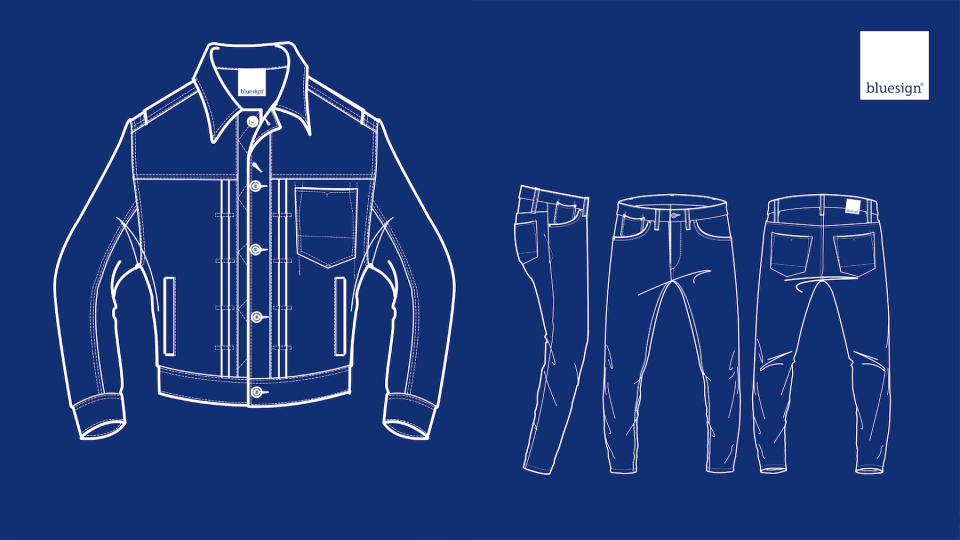What Mills and Laundries Need to Know About ‘Bluesign Denim’

Bluesign is working to move the denim supply chain toward cleaner, greener denim production.
The Swiss Madewell partner and champion of sustainable manufacturing introduced “Bluesign Denim: A Sustainable and Responsible Choice,” an initiative it hopes will encourage mills, textile manufacturers and laundries to adopt ethical, eco-friendly practices.
More from Sourcing Journal
Origin Launches First-Ever Commercial Plant for Key Chemical Component
CCI Debuts Exclusive US Cotton Performance Index for Yarn Mills at ITMA
“The concept of Bluesign denim is that so far, we’ve only focused on the fabric side of things when it came to denim [but] denim is wicked in the sense that there is a whole other step after the fabric manufacturing, which is the laundry step,” Kutay Saritosun, Bluesign’s director of brand services and partnerships in the EU and U.S., said. “We’re really excited to approach this as the whole two-step production process is what makes the denim industry a lot more demanding with regards to resources and chemistry, so we’re happy to look at it from a bigger perspective in the sense that we’ve been talking about fabric, but what about laundry processes?”
Bluesign is broadening its pool of possible partners, starting with the denim sector.
To join the program it soft-launched at Kingpins Amsterdam, denim mills, fabric manufacturers and laundries must meet certain criteria, including undergoing a Bluesign assessment, becoming a system partner and using Bluesign-approved chemistry. Brands and retailers must also complete the evaluation and be a system partner, as well as comply with the trademark agreement for Bluesign denim.
“Each one of these [denim mills and laundries has] to be a Bluesign system partner and that’s important for us because that also gives you the traceability of not just the materials but also traceability of the chemistry from the garment all the way to the chemical suppliers,” Saritosun said.
Production sites must also denim-specific criteria, such as only using Bluesign-approved indigo, establishing a phase-out plan for the toxic bleaching agent hypochlorite, abiding by the sandblasting ban, and forming a plan to replace pumice stonewashing with other techniques such as enzymes biopolishing or synthetic stones.
Bluesign-certified denim must adhere to other standards as well. Though the criteria will likely change in the coming weeks as the organization tweaks the program, qualifying denim production process can’t use chlorine bleach, powder-based enzymes or potassium permanganate (PP).

“With the launch of this concept and with early adopters, I think that will really help catapult the industry toward working more with Bluesign,” Saritosun said. “My expectation is, throughout this process [of] getting more denim mills becoming Bluesign system partners, more laundries becoming Bluesign system partners, they can then promote Bluesign-certified denim to the brands globally. I think there will be a lot of interest from the denim industry to adopt it and become a partner.”
With the EU Green Deal and other pending legislation, denim mills and laundries have extra incentive to begin implementing greener supply chain practices to get a head start on what will be mandatory in the coming years.
Bluesign said it will announce new denim partners in the weeks ahead.

